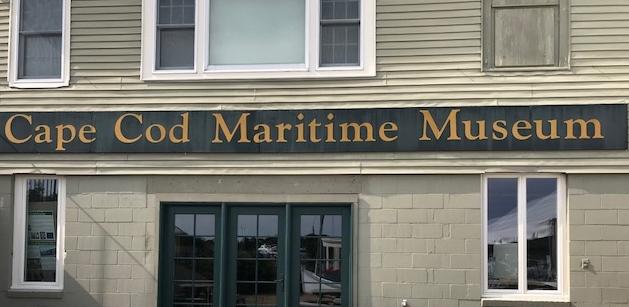While on vacation last week on Cape Cod, I popped into the Cape Cod Maritime Museum in Hyannis, Mass. Besides the excellent collection of scrimshaw from whaling ships, and the boat shop where they actually build wooden boats, I spent most of my time trying to figure out sailor talk.
It was a real “oh wow” moment to learn how many words and expressions we use everyday come from maritime origins.
Consider this:
Cup of Joe: We have Josephus Daniels, secretary of the Navy in 1913, to thank for this one. Among the many reforms he made to the Navy, he abolished the practice of officers drinking wine aboard ship. Coffee was the strongest drink allowed.
The Doldrums: We’ve all felt this. But the origin is far from human, referring to a sailing vessel that hits a calm stretch of ocean without any headwinds and remains stuck. Sailors called these areas “the doldrums” after the old English word “dol” which meant dull.
Bamboozled: If you’ve ever been tricked or cheated, you’ve probably used this word. In the 17th century, bamboozle was used to describe the Spanish custom of hoisting false colors above a ship to intentionally deceive enemies.

An exhibit at the Cape Cod Maritime Museum explains the maritime roots of common English expressions. Pamela Glass photo.
Footloose and Fancy Free: This is how we feel on vacation. In the old days, this expression was used by mariners to describe the uncontrolled motion of the loose footed sail. In most sailing vessels, the bottom of the mainsail is known as the foot and it is lashed to the boom to keep it stretched and properly shaped. A sail that wasn’t attached to the boom and was allowed to hang loose was called a “loose footed sail” that was difficult to control.
Rummage: In the 14th century, the French word “arrimage” meant loading a cargo ship. If this cargo was damaged during the voyage, the goods were sold at discounted prices known as “arrimage sales.” This eventually became “rummage.”
Fathom: In nautical terms a “fathom” is equal to six feet and is used to measure the distance to the bottom of the sea. When we say someone is trying to “fathom” something, he is trying to figure it out or “get to the bottom” of it.
Dire Straits: No, not the rock group. We use this to refer to a difficult situation. A strait is a naturally formed, narrow waterway that connects two larger bodies of water. Dire straits began to be used in the 15th century to refer to the many straits around the world that were difficult to navigate, often causing shipwrecks.
Figureheads: These are those very elaborate, carved decorative figures at the bow of old sailing ships. Think damsels with flowing clothing, painted and often gilded, adding prestige to a vessel. Today, figurehead usually describes a leader who has no real job or function except to look good.
Chewing the Fat: Mariners are really good at this, especially during downtimes with their colleagues. exchanging stories and often grumbling and complaining. Chewing the fat originally referred to a sailor’s daily ration of tough, fatty salt-cured pork or beef that required a lot of chewing to make the meat edible.
Channel: This is the deepest part of a river, harbor or strait where a ship can safely navigate though. On land, using “proper channels” means getting something done by going through the correct procedures.
True Colors: When a vessel flew a flag indicating its true country of origin, she was flying her “true colors.” Sometimes “false colors” were intentionally flown to deceive an enemy. On land, “true colors” refers to someone’s true character, while “false colors” refers to something a person pretends to be but is not.
A quiz at the museum revealed that I was constantly bamboozled by these terms, and it showed my true colors of ignorance, which put me in dire straits. I think I need to chew the fat a bit more with a bunch of mariners who aren’t figureheads.
So, how many of the above did you know the origins of?




